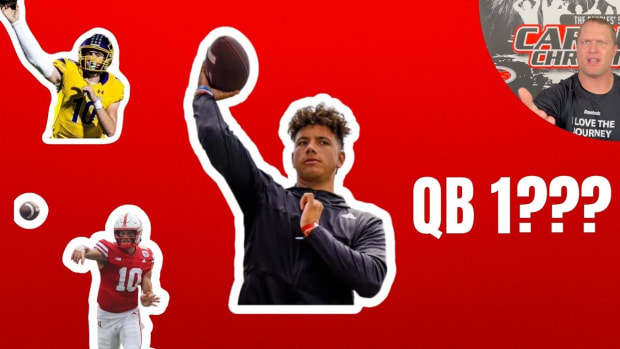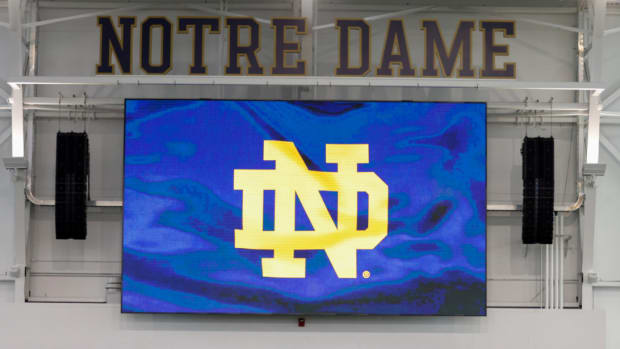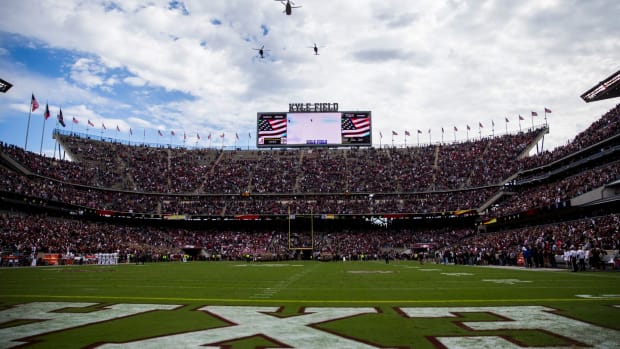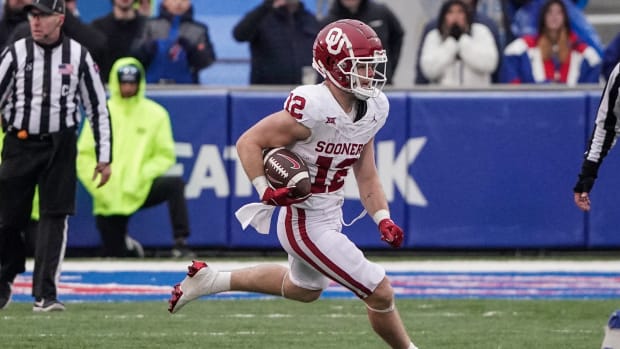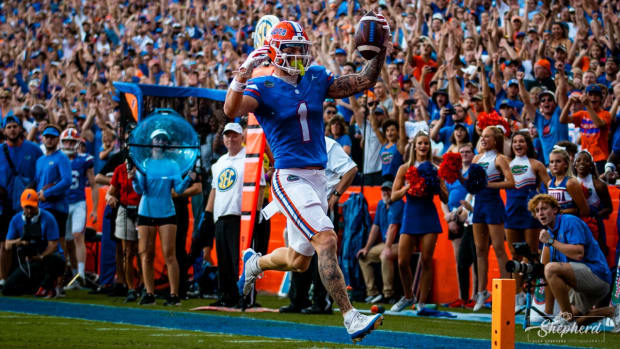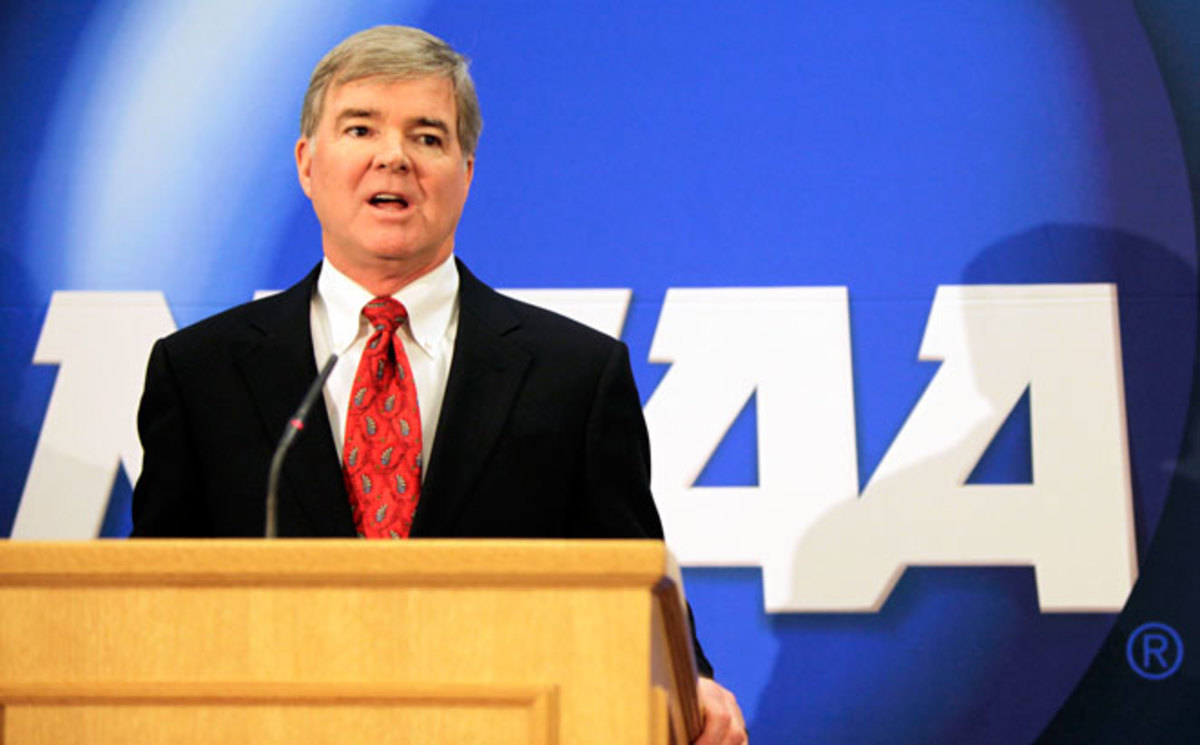
Miami report highlights need for NCAA transparency
The NCAA has never opened a larger window into its enforcement sausage factory than it did on Monday, and with good reason. The organization does not want you to know how it investigates, prosecutes and convicts those who violate its rules.
Whenever someone has tried to reveal how the NCAA's enforcement department handles cases, the NCAA has moved quickly to shut it down. In 2009 and 2010, the NCAA encouraged Florida State, a publicly funded institution, to violate Florida's open records law and withhold the release of records from an academic fraud case. A Florida court disagreed with the NCAA and forced the release of the records. Since late last year, the NCAA has fought to keep evidence under seal in former USC assistant Todd McNair's defamation suit against the organization. Because the judge in the case cited some of the records in a previous decision, we know their full release would illustrate how the enforcement staffers assigned to the Reggie Bush case cooked the evidence to ensure they snared a USC employee. This would crush the NCAA's credibility even more than the release Monday of the independent report by attorney Kenneth Wainstein that revealed how an NCAA enforcement staffer hired the criminal attorney of convicted Ponzi schemer/rogue Miami booster Nevin Shapiro to depose witnesses for the NCAA's purposes during a federal bankruptcy proceeding.
The release of the report in the Miami case didn't shatter the public's trust in the NCAA. The public never trusted the NCAA in the first place, because the NCAA usually acts as if it has something to hide. An organization funded by the activities of hundreds of mostly taxpayer-funded institutions has little right to privacy, but the NCAA's enforcement process has always taken place behind a steel curtain.
That's what made Monday's reveal so interesting. As damning as the report and accompanying documents were, they actually made me trust the NCAA more. As the organization works to find a better enforcement model, its leaders should consider this: The only way to earn trust is to show you can be trustworthy. That requires proof, and the NCAA can provide that proof by being more transparent from this point forward.
Anyone who reads this space regularly knows how I feel about the NCAA and its rules. They are arbitrary, archaic regulations designed to protect a notion of amateurism that was designed as a tax dodge and then elevated to exalted status by true believers who conveniently forgot why it was created in the first place. The rules don't work now that the university presidents and conference commissioners who run college sports have decided football and men's basketball should bring in billions in television revenue over the next 15 years. But since it's unrealistic to think entrenched zealots will suddenly reverse course and do the sensible thing, let's examine a more realistic possibility.
Clearly, the NCAA will have to alter its enforcement strategy. On Monday, colleague Stewart Mandel suggested outsourcing enforcement to an independent body. Meanwhile, NCAA president Mark Emmert tossed out the possibility of "something functionally analogous to the Senate Intelligence Committee" or a "third-party ombudsman." Those might be workable solutions, but an outside entity getting paid by the NCAA is just as beholden to the NCAA as NCAA employees are. Why not try something simpler? Keep the same enforcement staff and keep investigating cases in-house, but be open and honest about every investigation. After each case closes, release every piece of evidence gathered in the case. Put it all on the NCAA website for everyone to see.
MANDEL: NCAA needs to reevaluate entire enforcement model
This shouldn't sound that crazy. Nearly every law enforcement organization in America must release investigative findings at some point because state and federal laws require them to do so. That way, corruption can be spotted quickly and corrected. These cases -- thefts, rapes, murders -- actually matter. If the people investigating them can handle the harsh light of public scrutiny, so can the people investigating whether a booster gave a few thousand dollars to a quarterback who makes millions for his school or whether a few pre-freshmen football prospects violated the NCAA's even dumber rule against couch-surfing. Besides, if an investigator knew he could be exposed and probably fired if an improper action showed up in the case file, he might think twice about taking that action.
The report released Monday revealed that some people at the NCAA made decisions the organization considers unethical. But guess what else it did? It revealed that the NCAA also has smart, dedicated employees who handle their business properly. When investigator Ameen Najjar first proposed hiring attorney Maria Elena Perez to depose witnesses for the NCAA's purposes, he ran the scheme past NCAA attorney Naima Stevenson. Here is part of Stevenson's response:
"Essentially what is being requested is the engagement of counsel to not only represent her client's interest in a legal proceeding, the substance of which is not related to NCAA infractions, but for counsel to also represent the interests of the NCAA for which she should be paid by the NCAA. In addition to the fees and costs associated with the depositions, we would also be paying for counsel's time in conducting the depositions of individuals she would not otherwise depose. Understanding that there are at least three individuals that will not speak with us, but would be compelled to do so under the bankruptcy proceeding, our advice would be to not use a source's criminal attorney in this matter. Any information obtained through such a manner for use in the NCAA process would be subject to significant scrutiny to the extent any decisions were based on that information if those decisions were to be subsequently challenged."
That is a 157-word chunk of pure common sense, and the NCAA should be proud to employ someone who thinks so clearly. I've met a lot of NCAA employees while doing this job, and most of them fall in Stevenson's category and not Najjar's. Why not allow the public to see by how much the dedicated majority outnumbers the corner-cutting few? Certainly, there might be an occasional case in which the Family Educational Rights and Privacy Act prevents the release of certain academic records, but judges have been quite clear of late that FERPA does not apply to every record that has a student's name attached.
Of course, there would be an occasional scandal when cases aren't handled properly. That happens all the time in law enforcement, and typically the result is discipline for the corrupt. In the end, the people have more faith than they would have had if the entire process had happened secretly instead of publicly.
The NCAA needs to lift the veil of secrecy from its enforcement process. It might not always be pretty, but it would build trust. This may seem a drastic change for people accustomed to working with little public oversight, but they'll adjust if they're smart. The NCAA has no credibility left to lose, but it's not too late to try to earn some back.
ANDERSON: NCAA fires VP of enforcement, announces review of process
ANDERSON: Miami releases critical statement following NCAA's admissions

